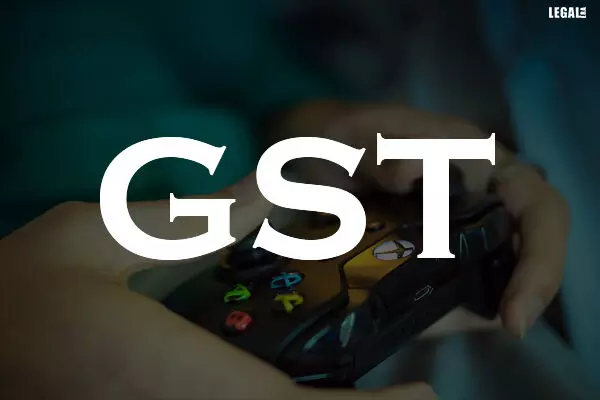- Home
- News
- Articles+
- Aerospace
- Artificial Intelligence
- Agriculture
- Alternate Dispute Resolution
- Arbitration & Mediation
- Banking and Finance
- Bankruptcy
- Book Review
- Bribery & Corruption
- Commercial Litigation
- Competition Law
- Conference Reports
- Consumer Products
- Contract
- Corporate Governance
- Corporate Law
- Covid-19
- Cryptocurrency
- Cybersecurity
- Data Protection
- Defence
- Digital Economy
- E-commerce
- Employment Law
- Energy and Natural Resources
- Entertainment and Sports Law
- Environmental Law
- Environmental, Social, and Governance
- Foreign Direct Investment
- Food and Beverage
- Gaming
- Health Care
- IBC Diaries
- In Focus
- Inclusion & Diversity
- Insurance Law
- Intellectual Property
- International Law
- IP & Tech Era
- Know the Law
- Labour Laws
- Law & Policy and Regulation
- Litigation
- Litigation Funding
- Manufacturing
- Mergers & Acquisitions
- NFTs
- Privacy
- Private Equity
- Project Finance
- Real Estate
- Risk and Compliance
- Student Corner
- Take On Board
- Tax
- Technology Media and Telecom
- Tributes
- Viewpoint
- Zoom In
- Law Firms
- In-House
- Rankings
- E-Magazine
- Legal Era TV
- Events
- Middle East
- Africa
- News
- Articles
- Aerospace
- Artificial Intelligence
- Agriculture
- Alternate Dispute Resolution
- Arbitration & Mediation
- Banking and Finance
- Bankruptcy
- Book Review
- Bribery & Corruption
- Commercial Litigation
- Competition Law
- Conference Reports
- Consumer Products
- Contract
- Corporate Governance
- Corporate Law
- Covid-19
- Cryptocurrency
- Cybersecurity
- Data Protection
- Defence
- Digital Economy
- E-commerce
- Employment Law
- Energy and Natural Resources
- Entertainment and Sports Law
- Environmental Law
- Environmental, Social, and Governance
- Foreign Direct Investment
- Food and Beverage
- Gaming
- Health Care
- IBC Diaries
- In Focus
- Inclusion & Diversity
- Insurance Law
- Intellectual Property
- International Law
- IP & Tech Era
- Know the Law
- Labour Laws
- Law & Policy and Regulation
- Litigation
- Litigation Funding
- Manufacturing
- Mergers & Acquisitions
- NFTs
- Privacy
- Private Equity
- Project Finance
- Real Estate
- Risk and Compliance
- Student Corner
- Take On Board
- Tax
- Technology Media and Telecom
- Tributes
- Viewpoint
- Zoom In
- Law Firms
- In-House
- Rankings
- E-Magazine
- Legal Era TV
- Events
- Middle East
- Africa
Gameskraft moves Karnataka High Court against GST authorities

Gameskraft moves Karnataka High Court against GST authorities
The online gaming intermediary was issued a notice to pay Rs.21,000 crores
Gameskraft Technologies has approached the Karnataka High Court against a show-cause notice issued by the Directorate General of Goods and Services Tax Intelligence (DGGI). The company maintained it happened despite the court's stay order on the notice after observing several contentious issues in the case.
The issue stems from a raid conducted by the Goods and Services Tax (GST) authorities on Gameskraft's office in November 2021. Thereafter, all the company's bank accounts were attached.
The quantum of the amount allegedly evaded by Gameskraft was at first said to be Rs.419 crore. However, it increased to Rs.5,000 crores, and ultimately Rs.21,000 crores after July 2022, as the respondents kept changing their narrative and began alleging that Gameskraft might be indulging in betting.
Finally, on 8 September, Gameskraft was issued an intimation notice by the GST authorities. It raised a demand of Rs.21,000 crores, which the company challenged before the high court.
On 23 September, Justice SR Krishna Kumar stayed the notice observing, "If the same is not stayed, the petition would be rendered infructuous and as such, I deem it just and appropriate to stay the impugned intimation pending disposal of this petition."
However, the online gambling company claims that despite the stay order, the very same day, the authorities illegally, contemptuously, and maliciously issued it the show-cause notice.
The petition highlighted that Ramesh Prabhu, the chief financial officer of the company was levied with a personal penalty. It argued that the allegations in the show-cause notice were the same as in the intimation notice which had already been stayed. It was a flagrant violation of the court's order.
The petitioner further submitted that the issue of taxability of online gaming was pending consideration before the GST Council for over three years. The authorities had erred in alleging that the gameplay facilitated by the petitioner was taxable at 28 percent.
The petition also pointed out that the respondents' entire case was built on the erroneous surmise that the activities undertaken by Gameskraft were an actionable claim and not a service. It said if interim relief was not granted, it would cause irreparable loss of goodwill and reputation to the petitioner.
The plea read, "The allegation that the petitioner was engaged in betting in the guise of rummy, goes against all the settled principles and jurisprudence with respect to betting/gambling."



